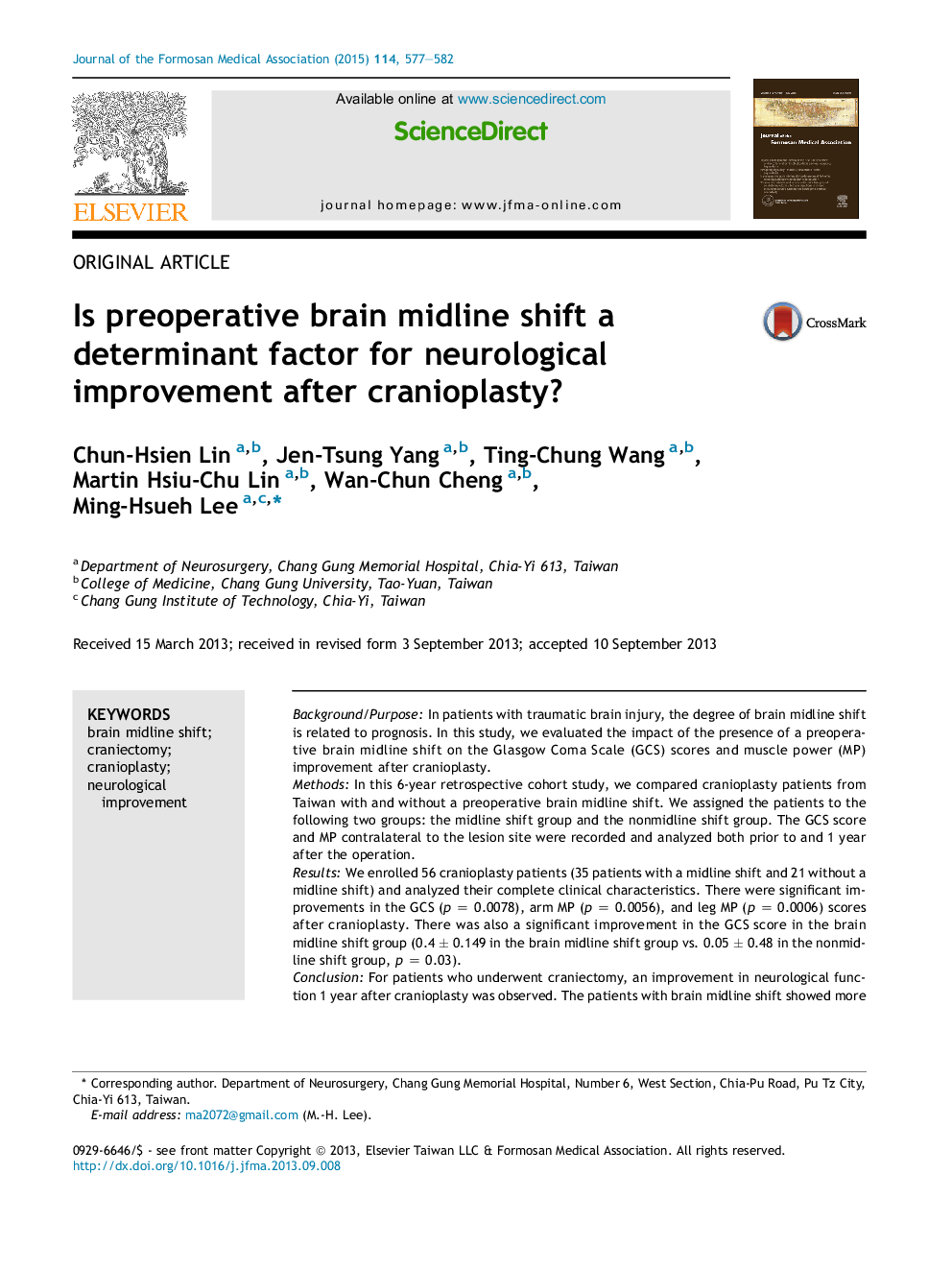| Article ID | Journal | Published Year | Pages | File Type |
|---|---|---|---|---|
| 3478592 | Journal of the Formosan Medical Association | 2015 | 6 Pages |
Background/PurposeIn patients with traumatic brain injury, the degree of brain midline shift is related to prognosis. In this study, we evaluated the impact of the presence of a preoperative brain midline shift on the Glasgow Coma Scale (GCS) scores and muscle power (MP) improvement after cranioplasty.MethodsIn this 6-year retrospective cohort study, we compared cranioplasty patients from Taiwan with and without a preoperative brain midline shift. We assigned the patients to the following two groups: the midline shift group and the nonmidline shift group. The GCS score and MP contralateral to the lesion site were recorded and analyzed both prior to and 1 year after the operation.ResultsWe enrolled 56 cranioplasty patients (35 patients with a midline shift and 21 without a midline shift) and analyzed their complete clinical characteristics. There were significant improvements in the GCS (p = 0.0078), arm MP (p = 0.0056), and leg MP (p = 0.0006) scores after cranioplasty. There was also a significant improvement in the GCS score in the brain midline shift group (0.4 ± 0.149 in the brain midline shift group vs. 0.05 ± 0.48 in the nonmidline shift group, p = 0.03).ConclusionFor patients who underwent craniectomy, an improvement in neurological function 1 year after cranioplasty was observed. The patients with brain midline shift showed more improvement in consciousness after cranioplasty than those without a brain midline shift. The presence of a preoperative brain midline shift may be an isolated determinant for the prediction of the outcome after cranioplasty.
